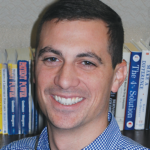Happy holidays to all elected officials, our allies, Legislative Forum members, and liberty lovers! This year was one of the best ever for The Heartland Institute: Among other things, we moved into a beautiful new building we own and added a marketing team. We also had a record increase in the number of state lawmakers joining our Legislative Forum and record attendance at our Tenth International Conference on Climate Change and our three regional Emerging Issues Forums.
In 2015, Heartland’s government relations team added two new employees: MaryAnn McCabe as a state government relations manager and Tim Benson as a policy analyst. In their few months with us, MaryAnn and Tim have already done a great job educating and assisting lawmakers around the country on key policy issues.
Looking forward to 2016, The Heartland Institute is positioning itself to have an even better year! We will continue our work on important and timely public policy issues, including: certificate of need reform, reforming Medicaid, repealing renewable portfolio standards, hydraulic fracturing regulations (including frac sand mining), state welfare reform, state pension reform, constitutional reform, repealing Common Core State Standards, expanding educational choice options, federal lands management, and many other key issues. Please contact our team if you have any questions about our work or would like one of our experts to come to your state to testify or speak.
One of our main goals for 2016 is to expand our Legislative Forum and offer even more exclusive benefits to our members. Membership in the Legislative Forum is just $99 for two years or $179 for a lifetime membership. Legislative Forum members receive travel reimbursement for Heartland events, priority access to our more than 250 policy experts, and the opportunity to have Heartland hold a policy forum in their states. If you are not already a Legislative Forum member and would like to join, you can sign up here.
Everyone at The Heartland Institute wishes you a very merry Christmas and a happy new year!
What We’re Working On
Budget & Tax
Research & Commentary: Kentucky Right-to-Work Reform
Kentucky could soon become the nation’s 26th right-to-work state, and Kentuckians have demonstrated they may be ready to support this reform. In a March 2015 poll conducted by Americans for Prosperity, 80 percent of respondents said workers “should not be forced to join a union or pay dues to one they don’t support.” In this Research & Commentary, Senior Policy Analyst Matthew Glans argues right-to-work laws create new jobs and foster economic and population growth. Kentucky lawmakers should consider implementing right-to-work. Read more
Constitutional Reform
New Yorkers Could Have a Constitutional Convention
In 2017, voters in New York will get to vote on whether the state should hold a constitutional convention. As Project Manager Kyle Maichle writes in Somewhat Reasonable, “The Constitution of New York State (NYSC) automatically refers a question to voters every 20 years to decide if the NYSC should be changed. The current constitution was drafted in 1894. There were two constitutional conventions held in the twentieth century. The 1938 convention led to several revisions to NYSC. The last time a constitutional convention was held was in 1967.” Read more
Education
Research & Commentary: Closing Failing New York City Schools Produces Gains for Students
The Research Alliance for New York City Schools, an initiative of New York University, has released an important new study on the effects of a reform plan that phased out and closed 29 chronically underperforming Big Apple public high schools. The study considers how the closures affected students already enrolled in the schools as well as the middle-school students who would have been required to attend them. In this Research & Commentary, Policy Analyst Tim Benson describes how the study shows that while the students attending the phase-out schools were not harmed by the process (as was predicted by critics), the cohort of students in middle school who would have attended the phase-out schools saw substantial benefits from attending better-performing schools. The chronic absentee rate for this cohort dropped by 6.3 percentage points, the graduation rate increased by 15.5 percentage points, and the number of students earning the more-demanding Regents diploma rose by 33.7 percentage points. Read more
Health Care
Research & Commentary: North Carolina Retiree Health Care Reform
The Charlotte Observer recently reported the North Carolina legislature will soon be considering legislation to address the $25.5 billion unfunded liability in the state’s retiree health system. North Carolina officials project the 30-year unfunded liability could grow to $37.5 billion by 2020 unless reforms are implemented. In this Research & Commentary, Senior Policy Analyst Matthew Glans argues North Carolina could combat public employee health care costs and improve choice by following Indiana’s Health Savings Account model for public workers. He writes, “Today, more than 50 percent of state government employees in Indiana have health savings accounts, the nation’s highest state employee participation rate in HSAs.” Read more
From Our Free-Market Friends
The American Tort Reform Foundation Releases its 2015–2016 Judicial Hellholes Report
The American Tort Reform Foundation (ATRF) recently issued its 2015–2016 Judicial Hellholes report identifying courts in California, Florida, Illinois, Louisiana, Missouri, New York, Texas, and Virginia as being among the nation’s “most unfair” in their handling of civil litigation. ATRF President Tiger Joyce says the report documents disturbing developments in jurisdictions where civil court judges apply laws unfairly, stating, “This year’s report shines its harshest spotlight on many courts and government authorities throughout hyper-litigious California, where legislators see fit to produce more than 800 new laws each year, inviting evermore litigation as residents and businesses can’t hope to keep up with what’s legal and what isn’t.” Read more



